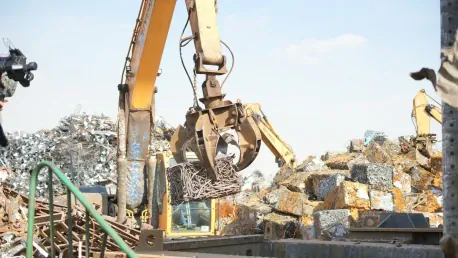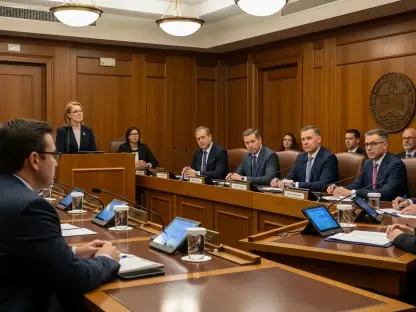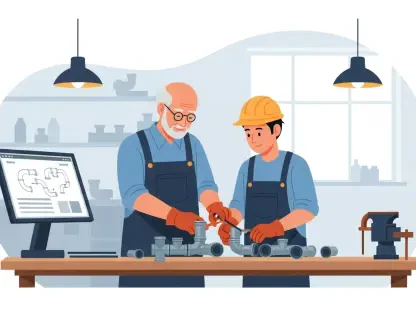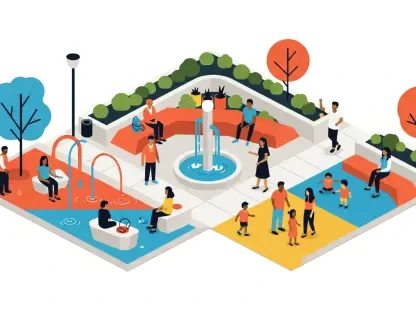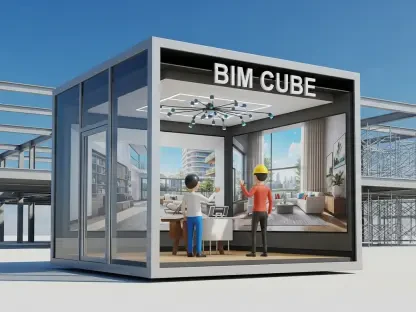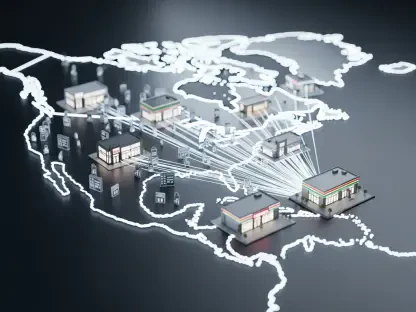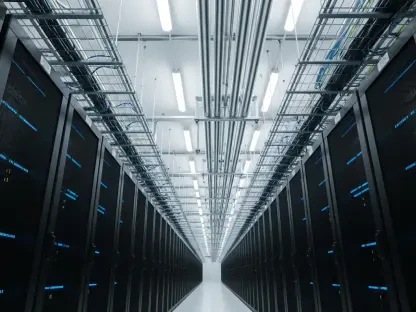The European Union (EU) is facing significant challenges in managing the vast amounts of waste generated through construction and recycling activities. In recent years, waste generation has seen a substantial increase, necessitating modern and effective management practices. According to recent Eurostat data, the EU produced approximately 2,153 million tonnes of waste in 2020, with construction and demolition activities contributing the largest portion at 37%. This substantial volume of waste underscores the need for innovative approaches and strong regulations to promote sustainability amidst ongoing infrastructure renewal.
Rising Waste from Construction and Demolition
Construction and demolition (C&D) activities continue to be the largest contributors to waste volumes within the EU. Traditional waste management practices, such as landfill disposal and simple sorting, have proven to be inadequate for meeting modern efficiency and sustainability demands. The need for advanced waste management techniques has never been more pressing. With more infrastructure projects on the horizon, the challenge lies in developing solutions that not only manage waste but do so in an environmentally friendly manner. Innovative technologies, such as automation and artificial intelligence, are gaining prominence in addressing these challenges. Companies like Waste Robotics are at the forefront of developing robotic sorting technologies that can efficiently separate diverse materials in complex waste streams. These solutions reduce contamination and enhance the quality and recyclability of recovered resources.
Furthermore, the sharp rise in secondary waste, particularly residues from incineration, requires the development of sustainable management strategies that can integrate the recovery of valuable materials. Reusing these residues in construction or manufacturing can significantly mitigate their environmental impact. In light of this, regulatory frameworks must adapt to encourage innovation, infrastructural investment, and clear standards for recycling by-products. Effective waste management requires strong collaboration between waste generators, technology innovators, and policymakers to advance Europe’s circular economy.
Addressing the Impact of Mining and Quarrying
Mining and quarrying activities contribute significantly to waste generation, accounting for 23% of the total waste in the EU. The environmental toll of these extractive industries is considerable, and innovative resource recovery methods are essential for minimizing their impact. Large quantities of overburden, tailings, and residues produced during mining activities pose substantial environmental risks. Regulatory frameworks must enforce responsible industry practices to ensure that these activities do not further degrade the environment.
A key strategy in addressing the waste generated from mining and quarrying is to invest in technologies that can repurpose these residues. Resource recovery methods, such as extracting valuable materials from tailings or utilizing overburden in construction, can significantly reduce the environmental footprint of these industries. Policymakers need to establish clear regulations to promote the adoption of these innovative practices.
Additionally, public awareness and engagement are critical in fostering a culture of responsible waste disposal and minimization. Educational initiatives can play a significant role in promoting understanding and support for sustainable waste management practices. By involving communities in waste management strategies, the EU can foster greater accountability and participation in sustainability efforts.
Embracing Technological Innovations for Sustainable Waste Management
Technological innovations are pivotal to addressing the rising waste challenges in the EU. Robotic sorting technologies, for instance, offer an efficient way to manage complex waste streams, ensuring better separation and reduced contamination. Automation and artificial intelligence are transforming the waste management landscape, providing scalable solutions that can adapt to varying waste compositions. These technological advancements are not only enhancing operational efficiency but also contributing to higher recycling rates and better resource recovery.
Marine and incineration residues, often considered secondary waste, necessitate innovative approaches for sustainable management. Extracting valuable materials from these residues or repurposing them for use in other industries can mitigate their environmental impact. The integration of these strategies within a cohesive regulatory framework is crucial for ensuring that technological innovations are not just adopted but effectively utilized.
Moreover, the role of public awareness and engagement cannot be understated. Educational initiatives promoting responsible waste disposal and minimization practices contribute significantly to achieving sustainability goals. Efforts to increase community participation in recycling and waste management programs are essential for fostering a culture of environmental responsibility across the EU.
Collaborative Approaches and Policy Initiatives
The European Union (EU) is grappling with major challenges in handling the immense quantities of waste produced by construction and recycling activities. In recent years, there has been a notable rise in waste generation, highlighting the need for modern and efficient waste management practices. Recent data from Eurostat reveals that the EU generated around 2,153 million tonnes of waste in 2020, with construction and demolition activities accounting for the largest share at 37%. This massive amount of waste emphasizes the urgency for innovative strategies and robust regulations to foster sustainable practices, especially during ongoing infrastructure renewal projects. Addressing these challenges is crucial for the EU to promote environmental sustainability and mitigate the impact of waste on ecosystems. Strategic policy-making, technological advancements, and community engagement will be essential in reducing waste and promoting a circular economy within the EU.
